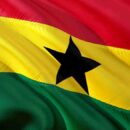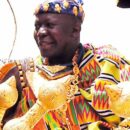Despite the country’s republican structure, it has preserved its monarchical traditions up till today. Kings and queens have played a significant role in the history of the country and continue to do so. Names like Kwamena Ansah II, Prempeh I, Kobina Ghartey, Kwadjo Deh, Nii Tackie, Ofori Atta and Oheneba Brew are all in living memory for their wisdom, foresight and patriotism. Chieftaincy has never had anything to do with folklore. Chiefs have always been the custodians of tribal culture, order and unity; they have always been promoters of continuity to their people. In times of adversity, the best of them have stood up courageously to fight against foreign tutelage. The Chief, who is actually a king, does not possess any absolutist hold over citizens, he is governed by clearly defined but unwritten.
This is why the coexistence of tradition and modernity in Ghana is considered natural. Today, royalty does not direct political power but nobody does anything in the Ghanaian society without paying due respect to traditional rulers, not even the government. Every hamlet, village, town, city or district has its royal representatives who wield traditional authority. The government recognized this important role long ago and has found a way to let their influence flow into the mainstream of political life. Every region has a House of Chiefs, which in turn sends a delegate to the National House of Chiefs, authorized to advise government on decisions affecting social life and culture in general.





Essentially chiefs hold sway over their clansmen. So the chiefs of larger tribes tend to wield more power than other chiefs. Adding to that, there is a vassal system in the country that results in chiefs with a larger number of vassals holding a formidable amount of power. Of course not overtly, but they do let their will be done. Finally there’s the economic bit. Subtly all Ghanaians have a greater affinity to their tribal identities that the national identity – our weakness and our strength… just ask someone who they are. And so tribes with more elites in terms of economic power, tend to see their chieftains held in high regard.
How much power do chiefs and kings in modern-day Ghana have in the administration of their area of domain?
They do certainly wield some power, but not very much. Governmental agencies have more power in virtually every town, city or village. But chiefs and kings collectively have more persuasive power than governmental so in that sense, you might say they have more indirect authority than the government.